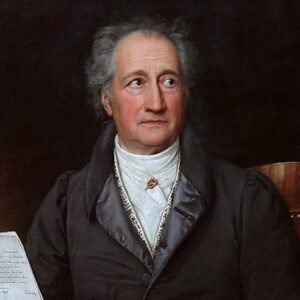You may have noticed that there are a lot of writers writing a lot about the coronavirus. As every day passes, I want to read these pieces less and less. I don’t care about the subtleties of your daily experience under lockdown, Sensitive Writer Person. I don’t care about your analysis of how everything is going to change or about how everything is actually not really going to change, Journalist. I am indifferent as to your recommendations, Pundit. I give not a crap about your brilliant reading of Camus in light of COVID-19, Essayist. I’m in a boycott, a deep boycott. I will read nothing about coronavirus until 2030; this is my current and most solemn pledge.
That said, I read one thing that was pretty amazing. It was published in The New York Times, an opinion piece put into print on March 19, 2020. The piece was written by one Jan-Werner Müller—who, the byline informed us, is a politics professor at Princeton University. He wrote, “But apart from sheer destruction, crises could lead to something more constructive: a commitment to mutual aid, a sense, to paraphrase W.H. Auden, that we must assist one another or die.”
The reference is, of course, to Auden’s famous poem September 1, 1939. That poem contains the well-known line “we must love one another or die.” I say a well-known line, but that doesn’t really capture it now, does it? The line is more than well-known—it verges into the realm of sacred writings of our time, a scrap of prophecy left to us from the 20th century. Müller, however, wasn’t especially comfortable with the word “love” in that beyond-famous line by Auden, and decided that Auden’s point would be improved if he permitted himself some off-the-cuff paraphrasing and changed the word “love” to the word “assist.” Assist one another. People helping one another step down from the bus and whatnot, I suppose. A nice thing to do. I mean, I’m not sure anyone is really going to die if they don’t get some assistance with whatever task is at hand. We must assist one another getting our luggage into the overhead compartments—or die! We must pick up the pencil that someone in line at the DMV just dropped—or die! We must hold the door open at the supermarket. Or die! Assisting, one might note, is not really a word, or even a concept, that goes very well with death. Perhaps Müller should have paraphrased a little more. “We must assist one another or be faced with various unwanted consequences!”
Auden, it ought to be noted, had his own problems with the uber-famous little line of poetry. Actually, he came to hate the entire poem. He came to think it was mostly just a bunch of phony platitudes and wanted it stricken from his collected works. The more people lauded the poem, the more he despised it. He tried to fix it by changing the word ‘or’ to the word ‘and’ as in, “We must love another and die.” One can understand his point. Love doesn’t really get you out of the inevitability of death. We’re all going to die, whether we love one another in the meantime or we don’t. So what’s the point of the word ‘or’ in the original line? What’s the ‘or’ trying to tell us?
I suspect Auden came to realize that the ‘or’ was cheap. That one little word was cheapening the power of the word that governs the rest of the line, and indeed the whole poem: ‘love’. But what of this love? What is it all about? Why does Auden suddenly declare that “we must love one another”? The answer is that there is no answer. The whole problem with the poem is that, by saying “we must love one another or die,” Auden essentially argues that we must love one another because if we don’t, bad things will happen. But that’s not really why we should love one another, and Auden himself came to see that the poem suffers from the bad thinking. There simply is no ‘or.’ You don’t enter into the radical act of love because you are trying to get something else. You can’t love, as you certainly should love, openly and disastrously and foolishly and without fear when you are calculating potential benefits. “We must love one another or die” promotes a concept of love that takes an instrumental approach to loving. The later Auden was right, the line stinks. “We must love one another and die” is far better.
One loves because one loves. Love itself is the reward for love. Pain is also the reward. And suffering. And the gnawing ever-present, if generally repressed knowledge, that whatever and whoever one loves will ultimately die, be lost in the overwhelming flow of time, and that we too will die. The point of loving is to be exposed to all of this. The point of loving is to be raw to all that will never be controlled or understood or managed, but which must be what it is, and in so being, in being the utterly unaccountable reality that is so very real and true and beautiful and terrifying and insurmountable, in being in love with all of this we will somehow also be adequate to it, right there with the big swirling beautiful mess of the world, and only insofar as we allow ourselves to receive it, all of it. We must, in other words, love one another and die.
Morgan Meis has a PhD in Philosophy and is a founding member of Flux Factory, an arts collective in New York. He has written for n+1, The Believer, Harper’s Magazine, The Virginia Quarterly Review and is a contributor at The New Yorker. He won the Whiting Award for non-fiction in 2013. Morgan is also an editor at 3 Quarks Daily, and a winner of a Creative Capital | Warhol Foundation Arts Writers grant. A book of Morgan’s selected essays can be found here. His new book from Slant is The Drunken Silenus. He can be reached at morganmeis@gmail.com.





